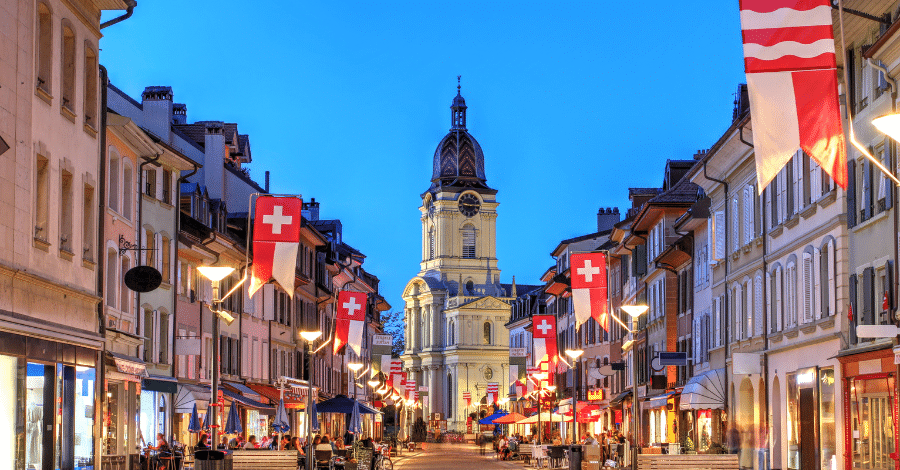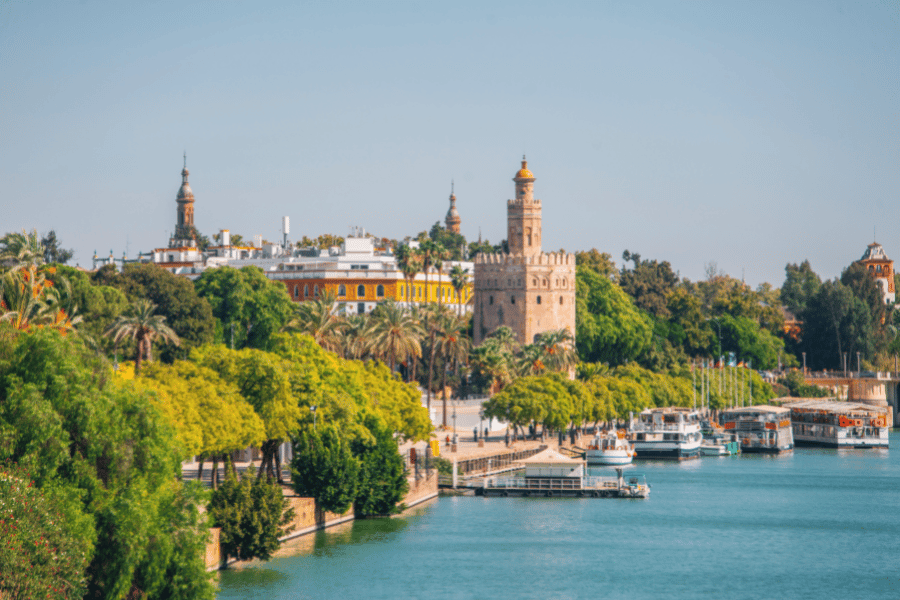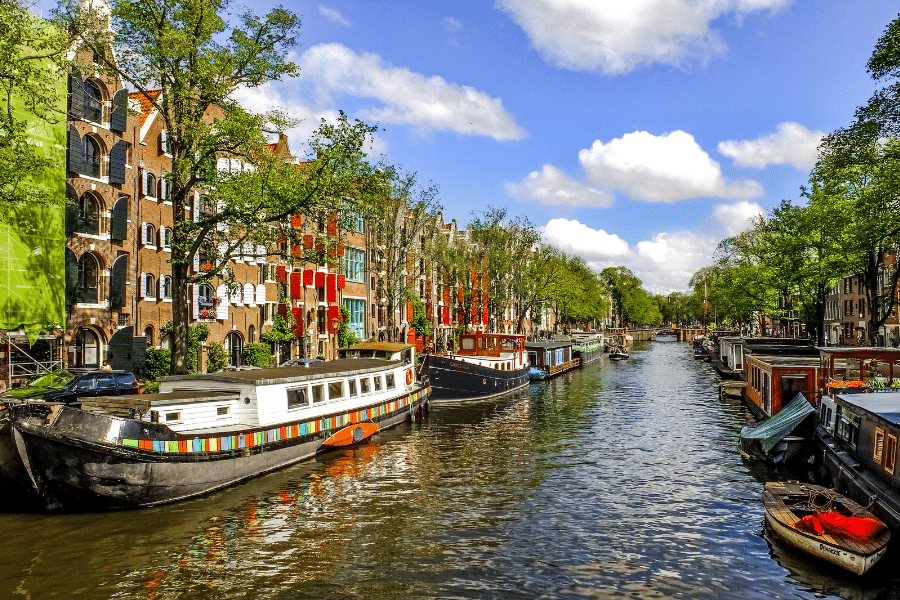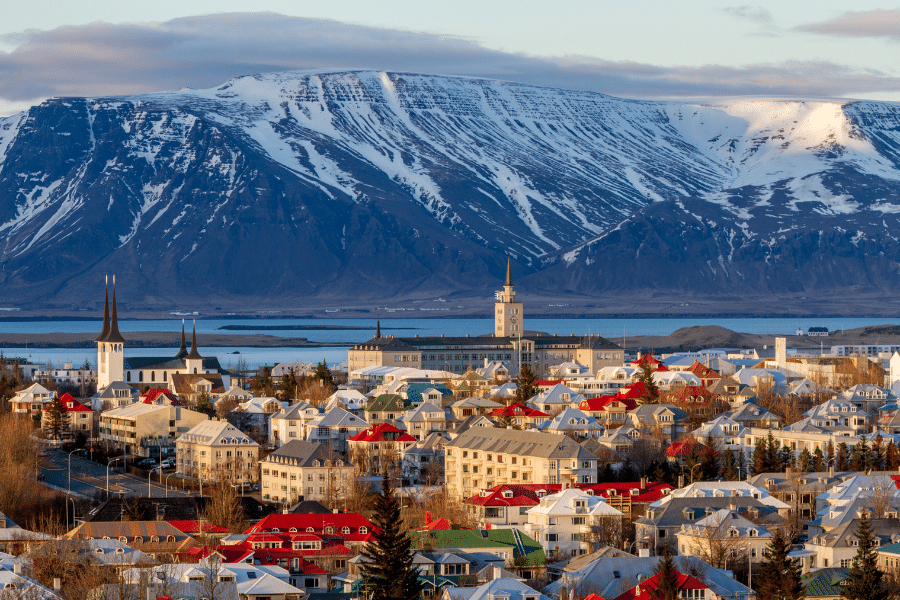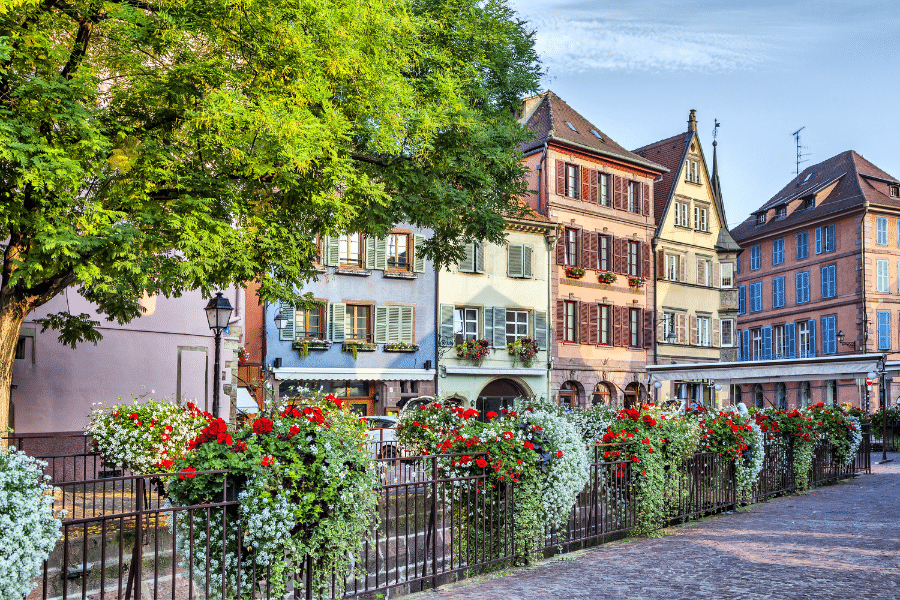Whenever planning a vacation or a move abroad, safety is usually the top concern for both travelers and expats. When you venture into a foreign country there is a lot of unknown that raises legitimate safety and wellbeing concerns. To ease these fears, it’s best to know what are the safest places to go to.
To start off the year right, we looked at a recent report from Berkshire Hathaway Travel Protection that identified the safest countries in the world to travel in 2024, using a methodology that focuses on traveler surveys about destinations and safety perceptions.
Most of the top 15 safest countries in the world are in Europe:
- Canada
- Switzerland
- Norway
- Ireland
- Netherlands
- United Kingdom
- Portugal
- Denmark
- Iceland
- Australia
- New Zealand
- Japan
- France
- Spain
- Brazil
Respondents evaluate the safety of countries they’ve visited in the last five years. The company then enriches these evaluations with the Global Peace Index, State Department safety ratings, and average GeoSure Global scores for major cities. Finally, they calculate a weighted score to represent each country’s overall safety, combining traveler feedback with established safety indices.
Switzerland tops the list of the safest countries in Europe in 2024, followed by Norway and Ireland. The top countries boast a high standard of living, strong human rights, and robust welfare and healthcare systems that underline a healthy, safe society.
What are the safest countries in Europe in 2024?
1. Switzerland
Known for its neutrality and political stability, Switzerland is one of the safest countries in Europe. It offers a high degree of freedom of movement, both internally and in relation to its neighboring countries due to its Schengen Area membership.
Switzerland prides itself on high standards of living and a strong commitment to human rights, although issues of discrimination can still be present, particularly towards non-native residents. The overall quality of life is excellent, with a focus on environmental preservation, healthcare, and education.
2. Norway
Norway is consistently ranked as one of the safest and most peaceful countries in the world. It offers extensive freedom of movement and a strong legal framework supporting equality and anti-discrimination.
Norwegians enjoy a high quality of life, benefiting from excellent healthcare, education, and a robust welfare system. The country’s approach to social equality and environmental sustainability also contributes to its high living standards.
3. Ireland
Ireland is generally a safe country with low crime rates. It offers significant freedom of movement and has made substantial progress in protecting rights and combating discrimination, particularly in terms of LGBTQ+ rights.
Ireland’s quality of life is high, with access to quality healthcare and education. However, it faces challenges like housing shortages and healthcare system pressures.
4. Netherlands
The Netherlands is known for its high levels of safety and social tolerance. It has a strong record on freedom of movement, anti-discrimination laws, and human rights protection.
The Dutch enjoy a high standard of living, with excellent infrastructure, healthcare, and education systems. The country is particularly progressive in terms of social policies and environmental sustainability.
5. United Kingdom
The UK generally offers a safe environment, though some urban areas can experience higher crime rates. It provides substantial freedom of movement, although Brexit has impacted this with regards to EU countries.
The UK has strong anti-discrimination laws, but issues related to racial and social inequality persist. The quality of life is generally high, with access to healthcare (NHS) and a well-established education system.
6. Portugal
Portugal is a safe country with low crime rates. It offers good freedom of movement within the Schengen Area and has made significant strides in promoting equality and anti-discrimination.
The quality of life in Portugal is generally high, with a focus on healthcare, education, and a growing economy. The cost of living is relatively low compared to other Western European countries.
7. Denmark
Denmark ranks high in safety, and its residents enjoy a high degree of freedom of movement. The country is known for its strong welfare state, progressive policies, and efforts to combat discrimination and promote equality.
Danes benefit from an excellent quality of life, which includes access to high-quality healthcare, education, and a strong focus on work-life balance.
8. Iceland
Iceland is one of the safest countries in the world, with extremely low crime rates. It offers great freedom of movement and is progressive in terms of gender equality and LGBTQ+ rights.
Icelanders enjoy a high quality of life, with a focus on environmental sustainability, healthcare, and education.
9. France
France offers a high level of safety, though some urban areas can experience higher crime rates. It has strong policies on freedom of movement as part of the Schengen Area.
France is committed to equality and anti-discrimination, though challenges remain. The quality of life is high, with access to excellent healthcare, education, and a rich cultural heritage.
10. Spain
Spain is a relatively safe country with freedom of movement within the Schengen Area. It has made significant progress in terms of equality and anti-discrimination, particularly in LGBTQ+ rights.
The quality of life in Spain is generally high, with a focus on healthcare, education, and a laid-back lifestyle. However, economic challenges and unemployment rates can be concerns in some regions.
Top safety concerns when traveling and living abroad
Traveling to a foreign country often means encountering different languages, customs, laws, and environments. This unfamiliarity can make travelers feel vulnerable to risks like getting lost, facing communication barriers, or inadvertently breaking local laws.
Issues like theft, scams, or assault are big concerns for travelers and expats. They often seek information on how to keep themselves and their belongings safe while abroad.
They may be exposed to health risks not prevalent in their home country. These include tropical diseases, food and water safety issues, and inadequate healthcare facilities or services in certain destinations.
Concerns about crime rates, terrorism, political unrest, or civil disturbances are significant. Travelers want to ensure they are not putting themselves in harm’s way by traveling to areas with high crime rates or political instability.
Certain regions are more prone to natural disasters like earthquakes, hurricanes, floods, or wildfires. Travelers often seek to understand these risks to avoid being caught in dangerous situations.
The availability and quality of emergency services and infrastructure (such as roads, hospitals, and emergency response systems) vary significantly between countries. Travelers may be concerned about how well-equipped a destination is to handle emergencies.
Every country has its own set of cultural norms and legal regulations. Travelers often worry about inadvertently offending local customs or finding themselves in legal trouble due to ignorance of local laws.

